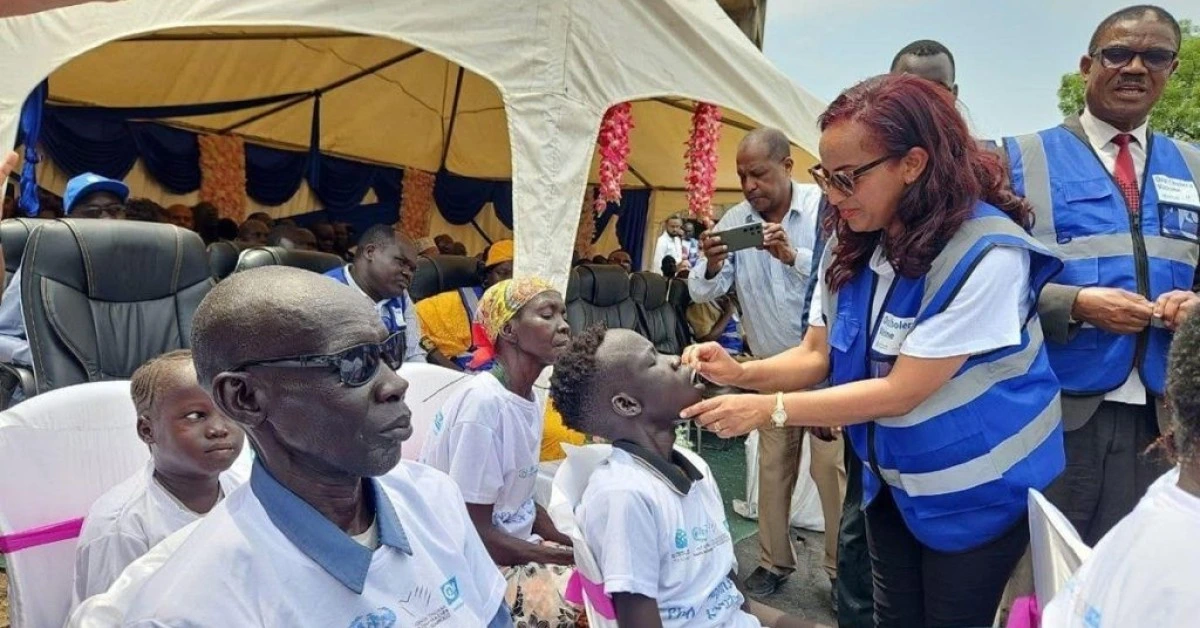
ETHIOPIA – Ethiopia has launched an urgent weeklong cholera vaccination campaign in its Gambella region, where rising cholera cases have already led to a significant number of deaths.
The initiative aims to vaccinate approximately one million people, including refugees displaced by ongoing violence in South Sudan.
Health officials are working diligently to control the spread of this deadly disease, exacerbated by waterborne transmission risks.
The outbreak, which began in early February 2025, has seen 1,320 reported cases and 29 deaths, with a case fatality rate of 2.2%.
The epidemic initially spread to four districts of the Nuer Zone and has since affected other regions, including refugee camps.
Gambella’s health officials are particularly concerned about the high vulnerability of displaced populations, many of whom have limited access to clean water and healthcare.
During the official launch of the vaccination campaign, Dr. Mekdes Daba, Ethiopia’s Minister of Health, emphasized the importance of improving the country’s ability to respond quickly to public health emergencies.
“A comprehensive national strategy is in place to prevent and control both communicable and non-communicable diseases,” she stated.
Efforts are being coordinated with regional governments and other stakeholders to ensure the vaccine reaches the most at-risk groups.
Dr. Mesay Hailu, Director-General of the Ethiopian Public Health Institute, pointed out that surveillance and prevention efforts are being intensified, especially as the rainy season approaches, which increases the likelihood of cholera outbreaks.
These measures include community engagement, rapid-response teams, and health education programs to encourage good hygiene practices and prevent the spread of the disease.
The cholera outbreak in Gambella is part of a wider health crisis in the Horn of Africa. In South Sudan, neighboring Ethiopia, the outbreak has caused over 36,000 cases and claimed more than 600 lives since October 2024.
Thousands of displaced South Sudanese people have crossed into Ethiopia, further straining the region’s health infrastructure.
Humanitarian organizations such as Doctors Without Borders/Médecins Sans Frontières (MSF) have expressed alarm over the rapidly deteriorating situation, noting that the refugee influx is overwhelming local healthcare systems.
MSF also warned of a humanitarian disaster developing along the South Sudan-Ethiopia border due to the combination of violence, displacement, and the cholera outbreak.
In addition to these health challenges, both Ethiopia and South Sudan are grappling with significant reductions in international aid.
The United States Agency for International Development (USAID) has recently cut funding for humanitarian projects, adding to the difficulty of responding to crises.
These funding cuts have already affected local NGOs and other agencies that provide vital services in these countries.
UNICEF has also highlighted the broader cholera crisis across Eastern and Southern Africa, noting that over 178,000 cases were reported between January 2024 and March 2025.
Countries such as South Sudan and Angola have seen particularly severe outbreaks, with children under 15 years of age making up a large proportion of cases.
Inadequate access to clean water, sanitation, and hygiene services has been identified as a major contributing factor to the spread of cholera in these regions.
UNICEF’s Regional Director for Eastern and Southern Africa, Etleva Kadilli, stressed the urgent need for governments and humanitarian organizations to invest in climate-resilient water, sanitation, and hygiene (WASH) infrastructure to prevent future outbreaks.
The lack of safe water and proper sanitation is also closely tied to other health and social issues, such as the vulnerability of children to waterborne diseases and school absenteeism, especially among girls during menstruation.
XRP HEALTHCARE L.L.C | License Number: 2312867.01 | Dubai | © Copyright 2025 | All Rights Reserved